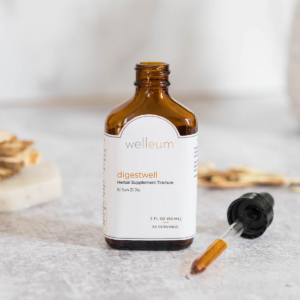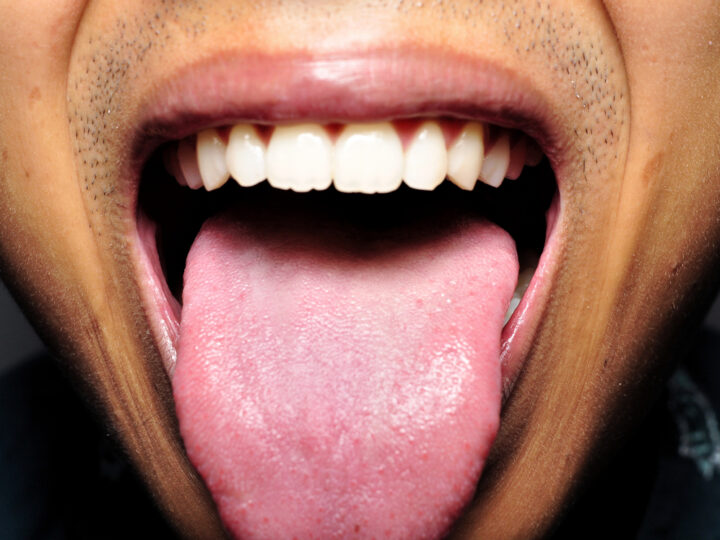IBS
The Eastern Medicine Approach

If you’re one of the 10 to 15% of Americans suffering from irritable bowel syndrome (IBS), or you think you’re experiencing symptoms, then you’re probably well aware that there’s no surefire cure.
But that doesn’t mean you have to just deal with — there’s a lot you can do to reduce symptoms so you can keep living your life to the fullest.
What Is IBS Exactly?
 Just so we’re on the same page, IBS is a “functional gastrointestinal” (GI) disorder caused by a dysfunction in the gut. It’s a chronic condition, so you have to treat it long term.
Just so we’re on the same page, IBS is a “functional gastrointestinal” (GI) disorder caused by a dysfunction in the gut. It’s a chronic condition, so you have to treat it long term.
Typical symptoms of IBS include:
- Abdominal pain (cramping)
- Diarrhea and/or constipation
- Gas and bloating
- Food intolerance
- Fatigue
- Difficulty sleeping
- Anxiety and depression
In the West, we tend to rely on medication to treat IBS, but that route usually comes with plenty of unwanted side-effects. Here’s what Eastern medicine has to say on the matter: Focus less on meds and make some lifestyle changes instead.
However, it’s worth mentioning that you shouldn’t quit your prescription meds if you’re already taking them; in fact, studies show that integrating conventional pharmacological therapy with Eastern medicine may result in “long-term symptom alleviation.”
That said, alleviating your IBS the holistic way requires a three-pronged approach:
- Frequent exercise
- Dietary changes
- A regular sleeping pattern
Making these lifestyle changes may reduce symptoms, but there’s more you can do, too. Don’t worry — we discuss everything you need to know below!
Take Bitters Before Or After Meals
You know how the French take bitter apertifs or digestifs around their meals? The bitter taste signals the Liver and Gallbladder that food is coming so they better start secreting those digestive juices. Bitters don’t have to be alcoholic- radicchio salad, endive, kale, coffee (if it doesn’t trigger you) or a bitter melon saute will all do the job. Bitters also trigger your gut to make serotonin so they can lift your depression!
Exercise Regularly
 As mentioned, physical activity is a great way to make IBS more tolerable. Even studies show that increased physical activity may reduce the severity of symptoms. Specifically, light physical activity tends to be best.
As mentioned, physical activity is a great way to make IBS more tolerable. Even studies show that increased physical activity may reduce the severity of symptoms. Specifically, light physical activity tends to be best.
Examples of “light” exercises include:
- Walking
- Yoga
- Tai Chi
- Swimming
- Light cycling
If you’re a couch potato, then this is an easy fix. Just start walking two to three miles a day. Tai chi movements are also a great exercise because they address the key elements of fitness: muscle strength, flexibility, balance, and aerobics (to a degree).
You can find tai chi exercises online if you’re not sure how to start, but it’s a great activity to get into with zero barrier to entry.
Take Eastern Medicine Herbal Remedies
Eastern medicine has approached IBS for centuries with natural herbal formulas. There are two formulas specifically that are said to relieve certain IBS symptoms:
- Tong Xie Yao Fang, and
- Shun Qi Tong Xie
Tong Xie Yao Fang is known to reduce diarrhea for people with IBS, and Shun Qi Tong Xie is said to help relieve abdominal pain. Both of these formulas are available as powders or capsules.
Of course, these formulas have other benefits, too: They help regulate the bodies qi. For example, Tong Xie Yao Fang is said to prevent liver qi stagnation, which causes gastrointestinal problems.
The formulas above are great for specific symptoms of IBS, but one of the biggest objectives it to get regular and that takes time to balance out your gut. A nice option for that is Si Jun Zi Tang and welleum’s digestwell. This gentle daily tincture is also known as the Four Gentleman Decoction (referencing the 4 herbs used in it), and it’s been used since the 2nd century AD to naturally nourish the digestive system. If you’re wondering which solution might be right for you, schedule a virtual consultation with one of our Eastern medicine experts so they can help create a custom digestive wellness plan for you.
Make Necessary Dietary Changes
 A big part of controlling your IBS (rather than it controlling you) is to make drastic diet changes.
A big part of controlling your IBS (rather than it controlling you) is to make drastic diet changes.
While IBS affects everyone differently, these foods are IBS triggers for many, so they’re worth watching out for:
- Processed foods (chips and cookies)
- Coffee, carbonated beverages, and alcohol
- High-protein diets
- Dairy products
In general, you should avoid fatty foods and lactose. There’s a lot of great food you can eat, but it really depends on how IBS affects you.
For example, some people with IBS avoid high-fiber diets because it can worsen gas and diarrhea, while others need more fiber to improve bowel movements. Whatever the case may be, typical diets for IBS include:
- High-fiber diets (lots of veggies, nuts, and fruits)
- Low-fiber diets (Aim for soluble fiber found in foods like apples, berries, and oatmeal)
- Gluten-free diets (No pasta, whole grains or wheat)
- Low-fat diets (lean meats, grains, veggies, and fruits)
In addition to changing your diet, you can also try taking psyllium powder, which is basically soluble fiber that reduces abdominal pain. You can also try out peppermint oil, which may reduce discomfort as well.
Stop Drinking Coffee and Alcohol
 Oof, this one may sting a bit. The good news is that, if alcohol or coffee doesn’t trigger your flare-ups, you should be good. If that’s not the case, then obviously you have to either cut down on your intake or stop drinking them altogether.
Oof, this one may sting a bit. The good news is that, if alcohol or coffee doesn’t trigger your flare-ups, you should be good. If that’s not the case, then obviously you have to either cut down on your intake or stop drinking them altogether.
If your IBS is triggered by gluten, one workaround is to drink gluten-free cocktails and beer. When it comes to coffee, some people swear by black tea, but you’ll have to try it yourself to see how it affects you.
Develop a Regular Sleeping Pattern
Sleep disorders are common if you have IBS. One workaround is to supplement sleep by taking melatonin. Not only is melatonin a great sleep aid; it’s also said to reduce abdominal pain.
You can get melatonin pretty much anywhere since it’s an over-the-counter drug that’s non-addictive. If you find that melatonin helps you sleep better, you should also try to fall into a regular sleeping pattern.
Even if you have trouble sleeping at night, it’s recommended to wake up at the same time each morning. This helps you develop a routine and, hopefully, will help you sleep better over time.
Have some natural IBS tricks you’d like to share? Be sure to post them below!
Newer
The Connection Between CCM and Spirituality
Older
Eternally Chapped Lips? Here Are Some Natural Solutions
Comments (0)
Leave a reply
You must be logged in to post a comment.





